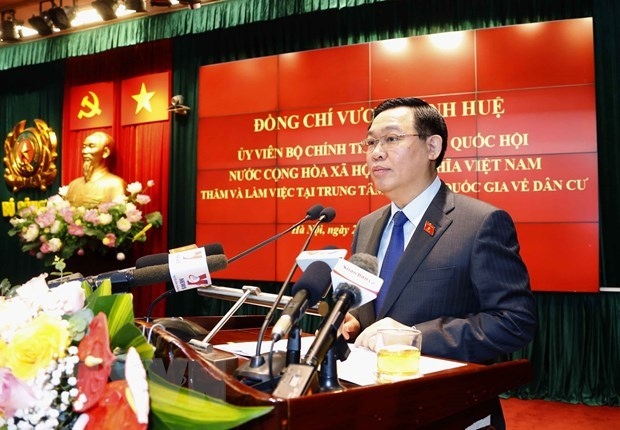
Top legislator visits national population data centre
Latest
 |
| National Assembly Chairman Vuong Dinh Hue. (Photo: VNA) |
NA Chairman Hue appreciated the completion of the national population database project and the system for making, granting, and managing citizen identity cards on schedule in July 2021.
He stated that the Government is building an e-Government towards a digital government, digital economy, and digital society, and promoting administrative reforms to create favourable conditions for people and businesses in socio-economic development. To that end, there must be big databases connected to each other.
The national population database is one of the six major national databases that have been prioritised by the Prime Minister to be carried out since 2015. It is also the core data and the foundation of the country to build and develop the digital Government, the digital National Assembly, and step up administrative reform to better serve the development needs of people and enterprises.
Since March 2020, the Ministry of Public Security has implemented a national database on population and citizen identification granting. This is a particularly important database to set up the electronic identity of citizens, contributing to the implementation of national digital transformation, and serving population management as well as the promulgation of guidelines and policies on socio-economic development, and ensuring national defense and security in the coming time.
Specifically, the National Population Database has served the prevention and control of COVID-19 such as offering population management software in pandemic-hit areas, COVID-19 vaccination software, and the verification of resident information to carry out social welfare support packages quickly and accurately.
Hue’s working session took place a few days after the 42nd ASEAN Inter-Parliamentary Assembly (AIPA) General Assembly which conveyed a message of an ASEAN valuing digital transformation and developing digital economy in order to expand development space and better adapt to global issues such as the COVID-19 pandemic.




















